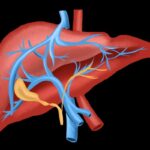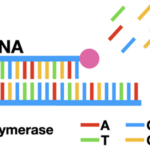Epigenetic age in the mouse?
Why do we need to know how do mice age?
The mouse is an excellent model for studying not only human diseases but also the effect of the environment on the epigenetic age of mice.
The scientists from Germany and US developed a new way to predict biological aging in mice that needs methylation information from just three particular sections of the genome, associated with three genes: Prima1, Hsf4, and Kcns1. This epigenetic clock is able to accurately predict the chronological age of mice.

Even though this approach is much faster and less expensive than other epigenetic approaches to measuring aging, it has a similar level of accuracy to existing models.
The importance of discovery of epigenetic clock in mouse is useful for understanding “how the aging process is affected by genetic parameters, diet, or other environmental factors.”
The discovery of epigenetic clock in mice will deepen our understanding into mechanisms that regulate age-associated DNA methylation changes and for longevity intervention studies.
https://doi.org/10.7554/eLife.37462.001
Recent Blog Posts
-
 13 Jun 2025MTL Epitherapeutics and RI-MUHC Develop Early Prostate Cancer Blood Test
13 Jun 2025MTL Epitherapeutics and RI-MUHC Develop Early Prostate Cancer Blood Test -
 11 Jan 2025EpiAge Research Publication Signals a New Era in Understanding Biological Aging
11 Jan 2025EpiAge Research Publication Signals a New Era in Understanding Biological Aging -
 18 Nov 2024EpiMedtech Global Announces FDA Registration of EPIAGE, the First Epigenetic Age Test Registered by the FDA
18 Nov 2024EpiMedtech Global Announces FDA Registration of EPIAGE, the First Epigenetic Age Test Registered by the FDA -
 18 Nov 2024EpiMedTech Global Validates Unique epiCervix HPV Combo Test for Cervical Cancer Detection
18 Nov 2024EpiMedTech Global Validates Unique epiCervix HPV Combo Test for Cervical Cancer Detection -
 31 Oct 2024HKG epiTherapeutics’ MetaGen Genetic Risk Assessment Test Receives FDA Registration, Now Available in the U.S.
31 Oct 2024HKG epiTherapeutics’ MetaGen Genetic Risk Assessment Test Receives FDA Registration, Now Available in the U.S. -
 31 Oct 2024EpiMedTech Global Launches epiGeneComplete: A Breakthrough Genetic and Epigenetic Test for Comprehensive Health Diagnostics
31 Oct 2024EpiMedTech Global Launches epiGeneComplete: A Breakthrough Genetic and Epigenetic Test for Comprehensive Health Diagnostics -
 30 Oct 2024Enhanced Early Detection of Liver Cancer
30 Oct 2024Enhanced Early Detection of Liver Cancer -
 08 Oct 2024Are Microarrays Still Reliable? How Next-Generation Sequencing Outperforms Traditional Methods
08 Oct 2024Are Microarrays Still Reliable? How Next-Generation Sequencing Outperforms Traditional Methods



